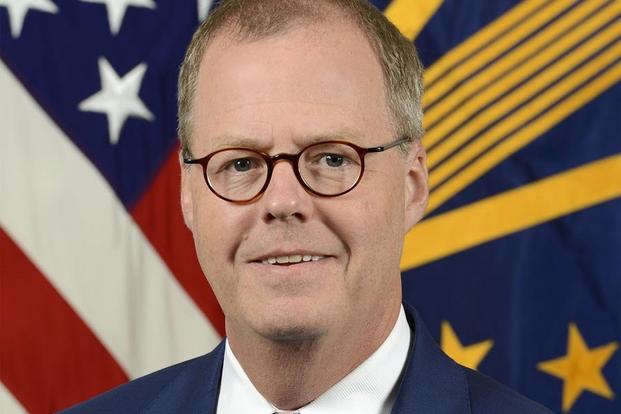The Senate last week confirmed Thomas McCaffery as assistant secretary of defense for health affairs -- the first permanent appointee to the post in more than three years.
McCaffery has been serving as principal deputy assistant secretary for health affairs since 2017 and has been performing the duties of primary advisor to the Secretary of Defense on health care, but without the official Senate stamp of approval.
His confirmation by voice vote on Thursday comes as the $50.6 billion military health system undergoes its largest transformation in more than 30 years.
McCaffery succeeds two other acting assistant secretaries. The last permanent holder of the title was Dr. Jonathan Woodson, a major general in the Army Reserve who served from 2010 to 2016 and now leads Army Reserve Medical Command.
The military health system has been an organization in flux since 2013 with the creation of the Defense Health Agency that oversees the medical support functions common to the service medical commands, including the Tricare health program, pharmacy operations, planning, logistics, training, education and medical facility management.
The agency is in the second phase of its ambitious plan to transfer all 51 hospitals, 381 ambulatory care and occupational health clinics and 247 dental clinics from the individual services to the DHA.
The Department of Defense also is rolling out a new electronic health record system, expected to be completed system wide by 2023, and it has introduced several changes to its Tricare health program in the past several years that have included an introduction of an open season enrollment period, a broader emphasis on managed care and the shedding of the retiree dental program in favor of the Federal Employee Dental and Vision Program.
In his confirmation hearing in November, McCaffery called his nomination a "privilege to lead the military health system during a period of unprecedented transformation -- transformative change."
"That magnitude of change I think makes people nervous. There is anxiety which I think is very natural," he told the Senate Armed Service Committee. "But at the end of the day when I visited military treatment facilities and was able to engage with the folks onsite, the leadership, the staff, [are] clearly ready to do this."
McCaffery, who served as vice president for Blue Shield of California's California State Partnerships and previously worked for the state of California as chief deputy director for health, takes the reins at a time when Congress is raising concerns over military mental health and suicide, protesting a policy change that bars transgender persons with gender dysphoria or those transitioning from serving in the military and pushing back on a DoD effort to cut an estimated 17,000 uniformed health billets. The exact number of billets to be cut is not known because military medical billeting is classified and the breakdown of the planned cuts has not been disclosed by the military services.
During his hearing and other testimony, McCaffery said he remains committed to policies instituted by the administration and promised more access to mental health services at the unit level as well as improved assessments to measure the well-being of new service members and those leaving the military.
A new mental health intake assessment is under review and a separation mental health exam should be implemented by the end of the year, McCaffery told the Senate Armed Services Committee in November.
"Again, another opportunity for us to check in with our service members and see if we can identify any at risk for suicide," he said.
He is expected to be sworn in later this month, according to Defense officials.
McCaffery, who served as vice president for Blue Shield of California's California State Partnerships and previously worked for the state of California as chief deputy director for health, takes the reins at a time when Congress is raising concerns over military mental health and suicide, protesting a policy change that bars transgender persons with gender dysphoria or those transitioning from serving in the military and
Editor’s Note: This story has been updated to reflect ambiguities remaining in the plan to reduce uniformed medical personnel.
-- Patricia Kime can be reached at Patricia.Kime@Military.com. Follow her on Twitter at @patriciakime.












